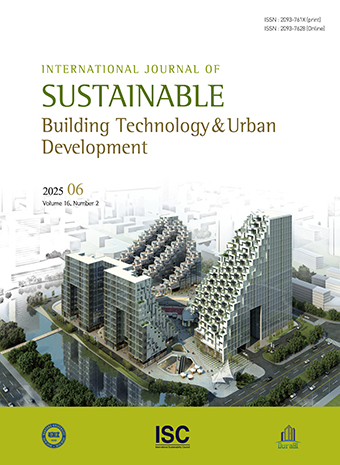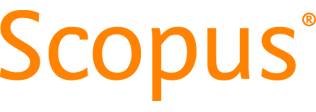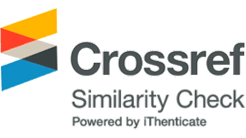Research Ethics Regulations
Chapter 1: General Provisions
Article 1. Purpose
This Code of Ethics establishes research ethics for researchers conducting research as members of the International Sustainability Council – ISC (hereinafter referred to as “the Society”), prevents research misconduct in advance, and conducts fair and systematic verification of truth in the event of research misconduct. The purpose is to stipulate matters related to the establishment and operation of the Research Ethics Committee (hereinafter referred to as the “Committee”) for processing.
Article 2. Applicability and scope
This code of ethics applies to all members of the society, and unless there are other special provisions regarding establishment of research ethics and verification of research integrity when conducting research and presenting papers, this code of ethics is followed.
Article 3. Scope of research misconduct
Research misconduct as defined in this Code of Ethics refers to the following:
① “Forgery” is the act of creating false data or research results that do not exist.
② “Falsification” refers to the act of distorting research content or results by artificially manipulating research materials, equipment, processes, etc. or arbitrarily modifying or deleting data.
③ “Plagiarism” is the act of using someone else’s ideas, research content, results, etc. without proper citation.
④ “Unfair paper author indication” refers to failing to grant paper authorship to a person who contributed or contributed to the content or results of the research without justifiable reasons, or failing to grant paper authorship to a person who contributed or did not contribute due to reasons such as expression of gratitude or courtesy. the act of qualifying
⑤ “Duplicate publication” refers to the act of republishing or posting material already published by the author without proper approval or citation. However, thesis is an exception.
⑥Intentionally obstructing an investigation into suspicions of misconduct by oneself or another person or causing harm to the informant
⑦Other acts that seriously deviate from the scope of what is normally acceptable in design or art-related academic fields, etc.
Chapter 2: Establishment and operation of the research ethics committee
Article 4. Roles and Functions
The committee deliberates and decides on the following matters related to the research ethics of society members.
① Matters related to the establishment and operation of research ethics-related systems
② Matters related to preliminary investigation and main investigation into research misconduct
③ Matters related to informant protection and confidentiality
④ Matters concerning measures to restore the honor of the person under investigation
⑤ Matters related to verification of research integrity, processing of verification results, and follow-up measures
⑥ Other matters discussed by the committee chairperson
Article 5. Composition
1. The president and the vice president in charge of thesis shall serve as ex officio members, and at least three other members shall be formed from among the thesis editors.
2. The chairperson shall be the president, and the term of office of the chairperson and members is the same as that of their respective positions.
3. The chairperson may appoint expert members after hearing the opinions of the committee.
Article 6. Meetings
1. If necessary, the chairperson convenes a committee meeting and becomes the chairperson.
2. Unless otherwise specified, decisions are made at meetings with the attendance of a majority of registered members and the approval of a majority of members present. However, a power of attorney is recognized as attendance in establishing a committee, but voting rights are not granted.
3. If the committee deems it necessary, the relevant person may be invited to attend to hear their opinions.
4. In principle, meetings are confidential.
5. Committee members involved in the research being investigated cannot participate in the meeting.
Article 7. Authority and Responsibilities
1. During the investigation process, the committee may request attendance and submission of evidence from informants, persons under investigation, witnesses, and references.
2. If the person under investigation refuses to attend or submit data without justifiable reason, it is a violation of the ethics regulations and can be presumed to have admitted to the charges.
3. The committee may take necessary measures to prevent the loss, damage, concealment or falsification of research records or evidence.
4. Committee members must observe confidentiality regarding all matters related to deliberation.
5. If a violation of the ethics regulations is determined to be true, appropriate sanctions may be recommended to the chairman.
Chapter 3: Verification of research integrity
Article 8. Reporting and Receipt of Misconduct
1. Reporters can report to the Society's secretariat in any possible way, and in principle, reports must be made under their real names. However, if you wish to report anonymously, you must submit the paper name (or research project title) and specific details and evidence of research misconduct in writing or by e-mail.
2. Informants who report the report even though they knew or could have known that the information was false are not eligible for protection.
Article 9. Preliminary investigation
1. The preliminary investigation is a procedure to decide whether to conduct a main investigation regarding suspicions of research misconduct. It must be initiated within 15 days from the date of receipt of the report, and the following matters are reviewed.
① Whether the reported content constitutes research misconduct as stipulated in Article 3
② Whether there is specificity and clarity in the report and whether there is a need and benefit to conduct a main investigation.
2. If the person under investigation fully acknowledges the fact of research misconduct, the chairperson may make a decision immediately without going through the main investigation.
3. The chairperson must notify the informant of the results of the preliminary investigation in writing within 10 days from the end of the preliminary investigation, and if it is decided not to conduct a main investigation, specific reasons for this must be included. However, this does not apply to anonymous reports.
4. The preliminary investigation shall be handled by the Research Ethics Committee, but if necessary, a separate subcommittee may be formed or the investigation may be requested from an expert whose affiliation is different from the subject of investigation.
5. The preliminary investigation must be completed within 30 days from the start date of the investigation and receive approval from the committee.
Article 10. Commencement and period of main investigation
1. The main investigation is a procedure to prove the fact of research misconduct. It must begin within 30 days after approval of the preliminary investigation results and be completed within 90 days from the start date of the investigation, including the decision.
2. The main investigation is conducted by forming an investigation committee pursuant to Article 11, and if the investigation committee determines that it cannot complete the investigation within the period specified in paragraph 1 above, it may explain the reason to the committee and request an extension of the investigation period.
Article 11. Investigation Committee Composition and Authority
1. The chairman of the investigation committee concurrently serves as the chairman of the research ethics committee.
2. The investigation committee shall be composed of five or more members, including the chairperson, and shall include at least two persons with extensive professional knowledge and experience in the relevant field.
3. To ensure fairness and objectivity, some external personnel who are not members of the society may be appointed, and persons with an interest in the investigation matter should not be included in the investigation committee.
4. The investigation committee must inform the informant of the list of investigation members before commencing the main investigation, and if the informant raises a legitimate objection regarding the avoidance of an investigator, it must accept it.
5. During the investigation process, the investigation committee may request the informant, the person under investigation, witnesses, and references to appear to make a statement, and in this case, the person under investigation must comply.
6. The investigation committee may request the person under investigation to submit data, and to preserve the evidence, secure and store data already submitted to the academic society by the person involved in research misconduct and other pre-published data.
Article 12. Protection of informants and investigated persons
1. Under no circumstances should the identity of the informant be exposed directly or indirectly, and the name of the informant shall not be included in the investigation results report for the purpose of protecting the informant unless absolutely necessary.
2. The informant must be protected from being disadvantaged in terms of status or discriminated against in terms of working conditions because of reporting research misconduct.
3. Matters regarding the identity of the informant are not subject to information disclosure.
4. If the informant is disadvantaged or discriminated against in paragraph 2 or has his or her identity exposed against his/her will, the relevant institution shall be responsible for this.
5. Investigated person refers to a person who has become the subject of investigation for research misconduct due to a report by an informant or the knowledge of a research institution, etc., or a person who has become the subject of investigation due to being presumed to have participated in research misconduct during the investigation process, and is a witness or witness during the investigation process. is not included here.
6. Until verification of misconduct is completed, care must be taken to ensure that the honor or rights of the person under investigation are not infringed, and efforts must be made to restore the honor of the person under investigation who has been found not guilty.
7. All matters related to the investigation, such as reporting, investigation, deliberation, resolution, and suggested actions, are kept confidential, and persons who directly or indirectly participated in the investigation, as well as the head of the organization and related employees, must disclose all information acquired during the investigation and performance of duties. This should not be done. However, if disclosure is necessary for justifiable reasons, disclosure may be made upon resolution of the investigation committee.
8. The investigation committee must guarantee equal opportunities for informants and those under investigation to state opinions, raise objections, and refute opinions, and must inform them of related procedures in advance.
Article 13. Decision
1. Judgment means that the chairperson confirms the results of the investigation and notifies them in writing to the informant and the investigated person.
2. All investigations from the start of the preliminary investigation to the decision must be completed within 6 months. However, if it is determined that it is difficult to conduct an investigation within this period, the investigation committee may notify the reporting agency, the informant, and the investigated person of the reason and extend the investigation period.
Chapter 4: Measures after verification
Article 14. Submission of investigation results
1. When conducting a preliminary investigation and a main investigation, the chairperson must submit the results to the committee within 10 days of the completion of the investigation.
2. The report under Paragraph 1 must include the following matters:
①Contents of report
②Survey results
③List of members of the investigation committee (limited to the case of the main investigation)
④Whether to conduct a main investigation and the basis for judgment (limited to preliminary investigation)
⑤The role of the investigated person in the relevant research and whether or not there was any research misconduct (limited to the case of the main investigation)
⑥Related evidence and a list of witnesses, witnesses, and other persons who participated in the consultation (limited to the case of the main investigation)
⑦Statements of the informant and the investigated person
Article 15. Follow-up measures on investigation results
1. The following sanctions may be imposed on a person who is judged to have committed research misconduct, or both may be imposed.
① Cancellation of publication of research-fraudulent papers and notification of this through the society’s website and journal.
② Prohibition on paper submission for 3 years after decision
③ Notification to the National Research Foundation of Korea and related organizations
④ Other appropriate measures
2. The notice under Paragraph 1, Item ① must include the author's name, paper name, volume (issue) of the paper, date of cancellation, reason for cancellation, etc.
3. Other appropriate measures under Paragraph 1, Item ④ shall be determined by the Committee depending on the severity of the misconduct.
4. The committee may deprive or suspend membership of a person who intentionally or grossly negligently provides untrue information or spreads false information in relation to the research ethics of this society.
Article 16. Follow-up measures, including restoration of reputation
If, as a result of the investigation, it is determined that there was no research misconduct, the committee may take appropriate follow-up measures in an effort to restore the reputation of the investigated person or suspect.
Article 17. Storage and disclosure of records
1. Records related to the investigation must be kept for 5 years from the end of the investigation.
2. After the decision is completed, the results must be reported to the board of directors of the academic society, and the committee's resolution is required in cases where information related to identity, such as the list of informants, investigators, witnesses, references, and those who participated in the consultation, may be disadvantageous to the parties. It can be excluded from the disclosure.
Chapter 5: Publishing Ethics
Article 18. Authorship
1. Authorship means 1) making a significant contribution to the conceptual framework and content composition of the study, planning, or collecting, analyzing and interpreting data, 2) directly writing the main contents of the study or revising important contents, and 3) In the process of writing a research paper, you must agree to and take responsibility for all aspects related to the research content so that questions related to the accuracy of the content can be appropriately resolved. 4) You must give final approval to the manuscript to be published.
① The first author is the person who contributed the most to the research.
② The responsible author receives comments, corrections, etc. from the paper review sent by the editor of the academic journal and contacts them. Additionally, contact information should be provided so that readers can contact the research team when they need to. The responsible author is one among the authors, and in principle, the number of responsible authors is preferably one per paper. The first author may also serve as the corresponding author. When submitting a paper, a list of authors and a copyright transfer agreement must be signed and submitted as the responsible author. ③ Persons who participated or contributed to the research but were partial and were not recognized as authors or did not meet the conditions of authorship are classified as contributors and are mentioned in the acknowledgments.
④ Authorship is determined by prior discussion with the research team, and the order of authorship is determined according to contribution and importance of the research.
2. Unfair authorship indication
Unfair authorship is not included in research misconduct, but is considered a dishonest act by the researcher.
① Invited (gift) author: A researcher who does not have or lacks authorship qualifications is included as an author due to a personal relationship with the researcher. It is also called an honorary author, as it often includes a superior, such as the head of an institution or organization, as an author.
② Ghost author: This refers to a case where an author played a very important role in the research but was excluded from authorship because he or she was a subordinate.
③ Exchange authorship: As studies become more specialized, this refers to a case where researchers majoring in the same field of interest and helping each other include the other person as an author on their paper. When this happens habitually, the term exchange authorship is used.
④ Author theft: This refers to the act of including famous people who did not participate in the research as authors without permission in order to increase the likelihood of the paper being accepted. Sometimes, the names of famous overseas researchers are stolen.
Chapter 6: Others
Article 19. Amendment of research ethics regulations
The procedure for revising the Code of Ethics is in accordance with the procedure for revising the Society’s Bylaws.


 International Journal of Sustainable Building Technology and Urban Development
International Journal of Sustainable Building Technology and Urban Development










